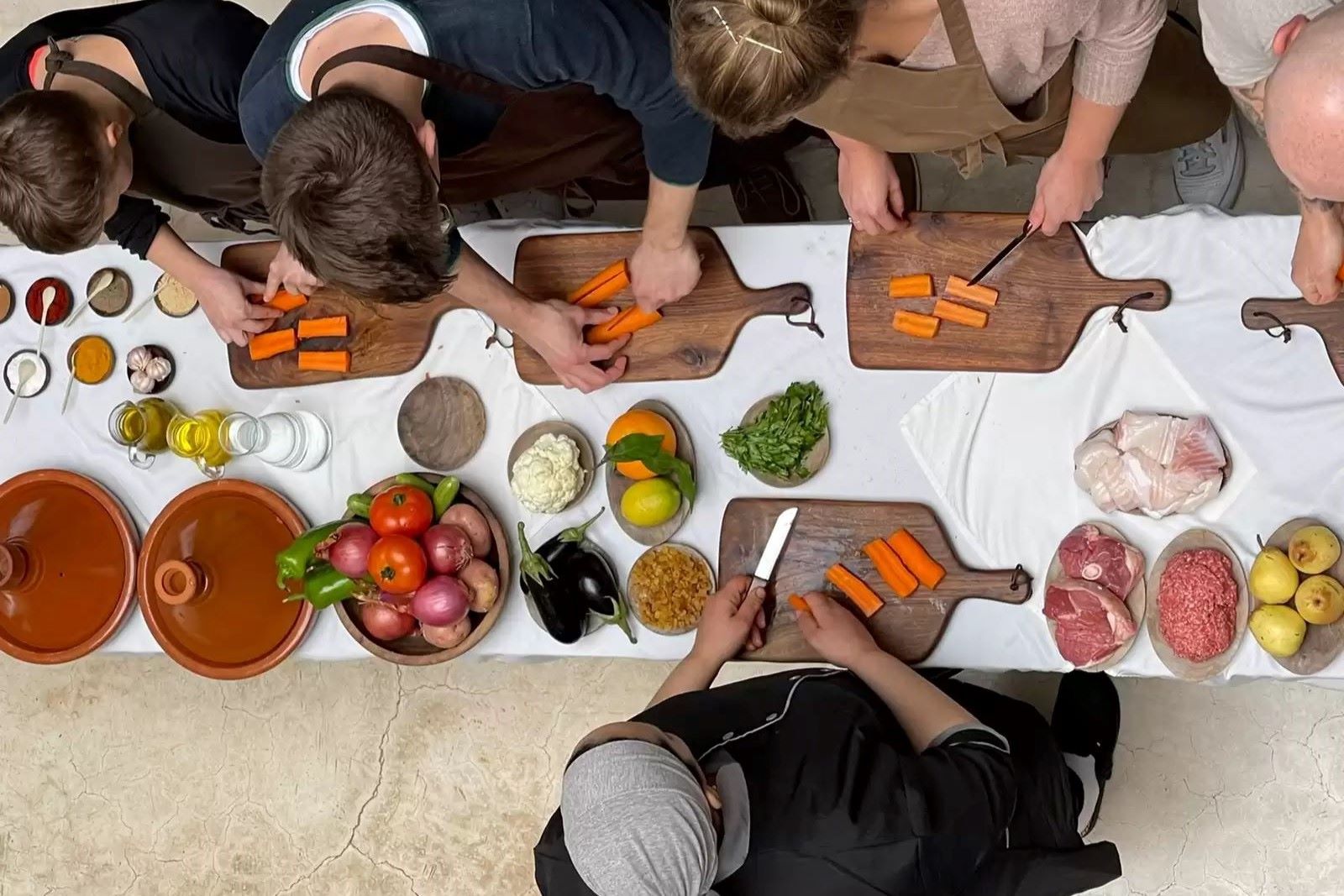Bedouin Cooking Secrets In Wadi Rum Jordan

Ever wondered what makes Bedouin cooking so special? In the heart of Wadi Rum, Jordan, the Bedouin people have perfected their culinary skills over centuries. Their cooking methods, deeply rooted in tradition, use simple ingredients to create mouthwatering dishes. Imagine savoring a meal cooked in an underground oven, known as a Zarb, where meat and vegetables are slow-cooked to perfection. The flavors are enhanced by the unique spices and herbs native to the region. Whether you're a food enthusiast or just curious, learning about Bedouin cooking offers a delicious glimpse into their rich culture. Ready to dig in?
Bedouin Cooking Secrets in Wadi Rum Jordan
Wadi Rum, Jordan, offers more than stunning landscapes. The Bedouin people, who have lived here for centuries, possess unique cooking secrets. Their culinary traditions blend simplicity with rich flavors, creating unforgettable dishes.
Traditional Bedouin Dishes
The Bedouin cuisine in Wadi Rum is a testament to their resourcefulness and deep connection to the desert. Here are some traditional dishes you must try.
Zarb: This dish is a Bedouin barbecue cooked underground. Meat, usually lamb or chicken, and vegetables are placed in a pit, covered with hot coals, and buried in the sand. The slow cooking process makes the meat incredibly tender and flavorful.
Mansaf: Considered the national dish of Jordan, Mansaf is a lamb dish cooked in a sauce of fermented dried yogurt and served with rice or bulgur. The Bedouins have perfected this dish, making it a must-try.
Shraak: A type of flatbread, Shraak is cooked on a large, dome-shaped griddle. The dough is stretched thin and quickly baked, resulting in a soft, pliable bread perfect for scooping up stews and dips.
Unique Cooking Techniques
The Bedouins have developed ingenious cooking methods to adapt to their harsh desert environment. These techniques are as fascinating as the dishes themselves.
Underground Ovens: The Zarb method involves digging a pit in the sand, placing a metal container with food inside, and covering it with hot coals and sand. This natural oven cooks food slowly, infusing it with smoky flavors.
Stone Cooking: For quick meals, Bedouins heat stones in a fire and then use them to cook meat and bread. This method is efficient and adds a unique taste to the food.
Solar Cooking: Utilizing the intense desert sun, Bedouins sometimes cook food using solar reflectors. This eco-friendly method is perfect for slow-cooking stews and soups.
Spices and Ingredients
The Bedouin pantry is simple yet rich in flavors. They use a variety of spices and ingredients that are both locally sourced and traded.
Sumac: This tangy, lemony spice is a staple in Bedouin cooking. It adds a zesty flavor to meats, salads, and rice dishes.
Za'atar: A blend of thyme, sesame seeds, and sumac, Za'atar is used to season bread, meats, and vegetables. Its earthy flavor is a signature of Bedouin cuisine.
Jameed: This dried yogurt is a key ingredient in Mansaf. It has a tangy, salty taste and is used to create a rich, creamy sauce for the dish.
Bedouin Hospitality
Hospitality is a cornerstone of Bedouin culture. Sharing food with guests is a cherished tradition, and meals are often communal, with everyone eating from a large platter.
Coffee Ceremony: Serving coffee is an important ritual. Bedouin coffee, made from lightly roasted beans and flavored with cardamom, is served in small cups. The host pours the coffee, and guests are expected to drink at least three cups.
Communal Eating: Meals are shared from a large platter, with everyone using their right hand to scoop up food. This practice fosters a sense of community and togetherness.
Generosity: Bedouins are known for their generosity. Guests are always offered the best portions of food, and it is considered an honor to share a meal with them.
Savoring Bedouin Flavors
Bedouin cooking in Wadi Rum offers a unique blend of tradition and flavor. The use of local spices, fresh ingredients, and ancient techniques creates dishes that are both simple and rich. Whether it's the slow-cooked Zarb, the fragrant Mansaf, or the sweet Baklava, each dish tells a story of the desert and its people. Experiencing these flavors in the stunning backdrop of Wadi Rum adds a layer of magic to the meal. For those who love food and adventure, diving into Bedouin cuisine is a must. It’s not just about eating; it’s about connecting with a culture that has thrived in the harshest conditions. So, next time you find yourself in Jordan, make sure to savor these Bedouin delights. Your taste buds will thank you.

